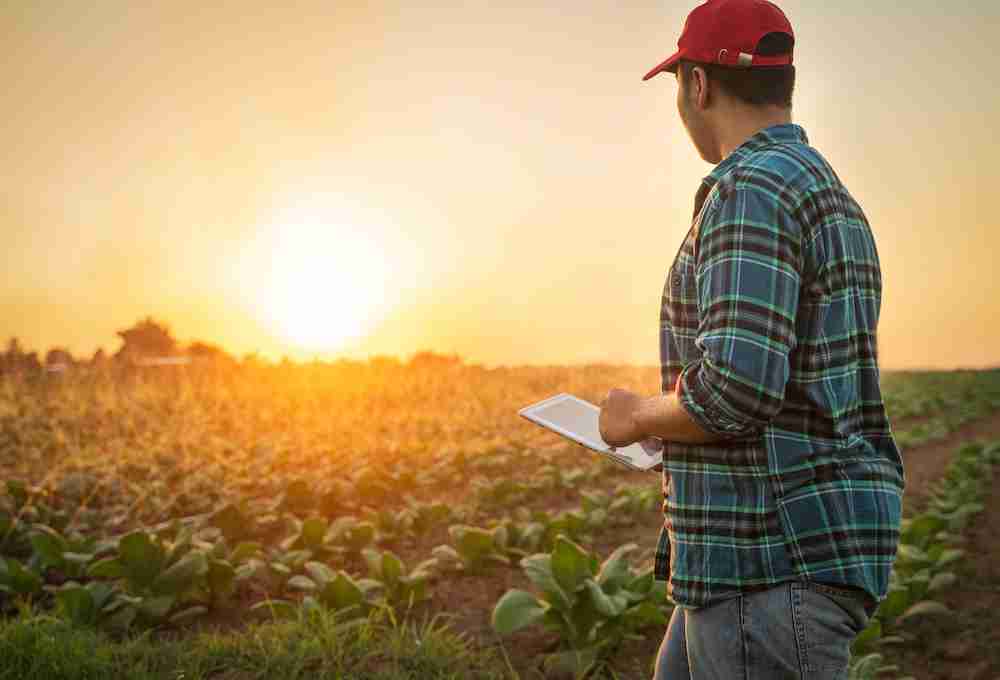What Are Smart Irrigation Systems and How Do They Work

One of the most impactful things growers can do to address climate change related water shortages is to reduce consumption, however, this can be difficult during drought periods or when growers employ conventional irrigation systems, as they lack a way of precisely controlling and measuring their water usage.
Smart irrigation systems give growers the ability to optimize and track consumption. It ensures you don't waste water or superfluously give it away. This article explains what smart irrigation systems are, how they work, and how they can help address water shortages.
What are Smart Irrigation Systems?
Smart irrigation systems are an innovative technology that you can incorporate into your existing irrigation system. They automate, monitor and analyze your water consumption, helping to reduce waste, detect leaks, and alert you of any potential problems.
By using a smart system that connects all water-related operations, you can use external inputs like soil moisture levels and weather conditions to create irrigation schedules based on your plants' real-time needs, rather than rely on traditional, manual methods of watering. This helps conserve water by reducing runoff, erosion, and evaporation.
How Smart Irrigation Systems Work
In traditional irrigation systems, a grower will manually open and close valves as needed. On the contrary, in smart water technology, the smart water valves embedded into your drip irrigation system intelligently track your water consumption while allowing you to remotely control your usage.
A smart water valve contains a valve controller, a flow meter, wireless connectivity, and a power source. The smart valve captures data from flow meters, which measures water flow through each of your irrigation lines. It then sends that information to a cloud managed software platform via a wireless connection. From there, you can access your water usage data on your phone or computer at any time, from anywhere and make adjustments accordingly.
Using Smart Water Technology to Resist Water Shortages
While we work on reducing our carbon footprint through methods such as efficient transport and renewable energy, growers can also take proactive steps to reduce their environmental impact. Using smart water technology can help resist water shortages by saving water in the following ways:
Leak Detection
An irrigation system with a leak can cost you up to 6,300 gallons of water per month. Such leaks can be detrimental to your supply and may cost you water in critical times of drought. The easiest way to monitor and reduce your consumption is to ascertain that water isn't going to waste through leaks.
Leak detection technology gives you immediate access to information about your most valuable resource. This can significantly reduce a farm's water usage without necessitating large up-front costs or even shutting down processes for maintenance.
Measurement
The key to making smart irrigation decisions is good data. One way you can be more astute about managing water is by confirming your irrigation systems are instrumented with smart sensors and controllers.
Real-time smart sensors permit you to seamlessly determine how much water is being applied and where it's being utilized. By making you aware of the amount of water your crops have received, smart irrigation technology enables growers to have full visibility into where their water is being used so they can proactively address any unplanned deviations to their irrigation schedules.
Automation
While irrigation controllers and timers aren’t a new concept, they have not been widely adopted, due to them being costly, complicated and unreliable. However, with modern systems, automation is much more user friendly and affordable. By automating your irrigation, you’ll never overwater your crops again, since valves will shut off when the precise volumes have been achieved. Additionally, you’ll save on labor costs since you won’t need to hire someone to operate and oversee the operation of each valve.
Improved irrigation management alone can save growers 20 percent or more of their total water consumption for crops like almonds, strawberries, and wine grapes, where saving water is a serious challenge.
Harnessing Real-Time Data
Real-time data analytics are more significant than ever for growers. There are several data solutions on the market to help determine optimal water schedules for crops such as:
- Soil moisture sensors
- Plant sensors and pressure chambers
- Weather stations
- Satellite imagery
Smart irrigation systems will often integrate with these external data sources, so growers can manage and create their irrigation schedules within a single dashboard and easily make any adjustments, without jumping around from app to app.
Preventitive Maintenance
By automatically monitoring pressure and water flow, smart irrigation technology can detect problems before they happen. This means you'll know about potential issues before they become costly or even dangerous. You can also proactively counter leaks and clogs, which are one of the biggest causes of wasted water in many farming operations.
Optimization
Data, automation and sensor technology enable growers to take irrigation optimization to a whole new level. When all these factors come together optimally, you can distribute just enough water exactly where it should go and avoid wastage.
Smart irrigation systems can not only help growers save time and money, but also significantly reduce the amount of water needed for their crops, while achieving the same, if not better results.
Getting Started with a Modern Solution
It's essential to do everything you can to conserve water and curb the effects of climate change. One way to do this is by using water more efficiently. With smart irrigation systems, growers can use less irrigation water without putting their crops and livelihoods at risk. At Lumo, we believe that every drop counts when conserving our natural resources. As a result, we have developed a smart irrigation system that helps you automate and track your water usage in an easy to use manner. Contact us today to learn how we can make your irrigation effortless and more efficient.